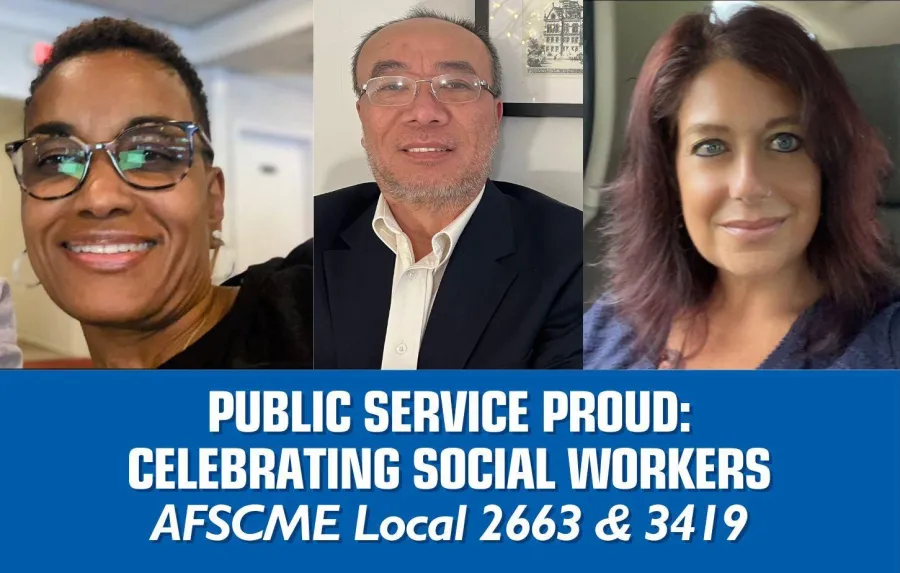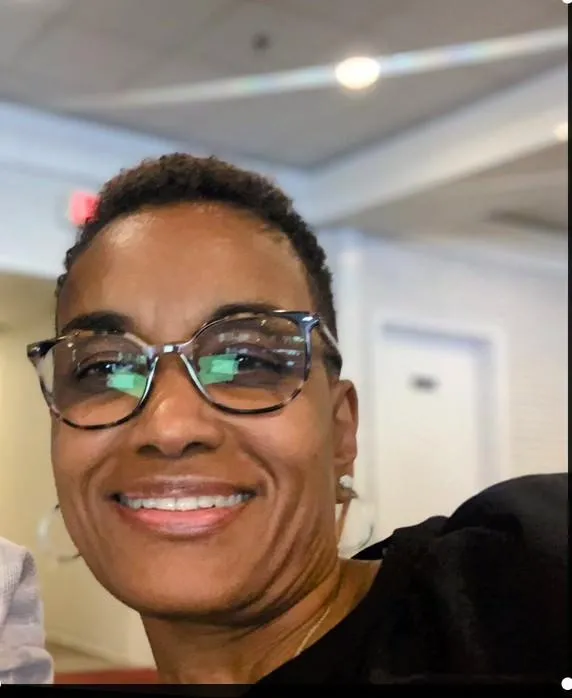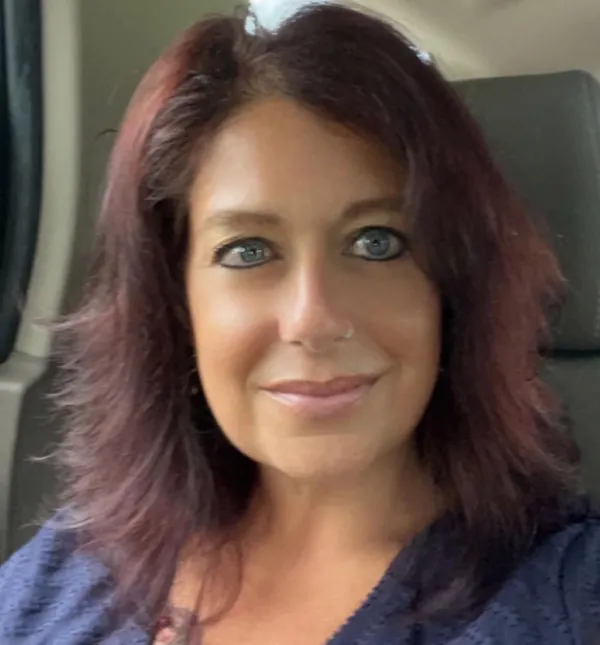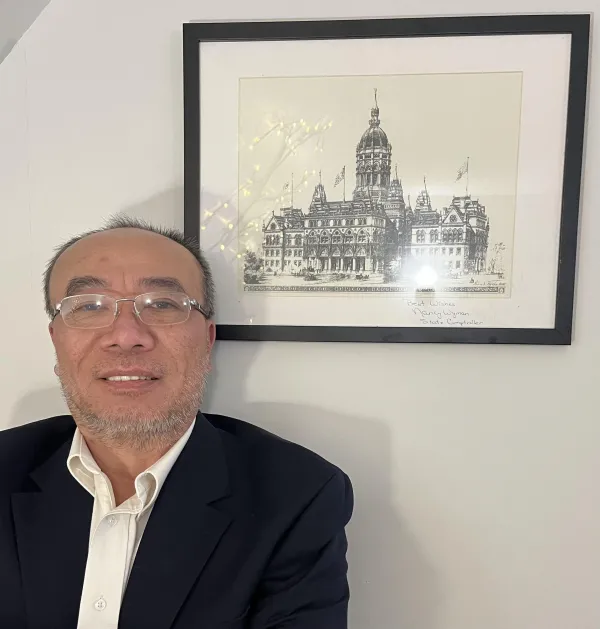Public Service Proud: Celebrating Social Workers (2/2)

This article is a second part of a two-part series.
Social workers stand as a pillar of support, compassion, and advocacy for those who are the most marginalized in our communities. This March, Council 4 is highlighting incredible social work members for National Social Work Month.
Social workers work tirelessly, sometimes against overwhelming odds, to uplift those in need. Department of Children and Families (DCF) state social workers, members of AFSCME Local 2663, are no different. Behind every success story, such as a family reuniting, a child or parent receiving the services they desperately need, or a child in foster care graduating high school, there stands a social worker dedicated to being the last line of defense, the last safety net to those who need it.
Whether it is investigating cases of child abuse or neglect, conducting home visits, connecting clients to service providers, bussing kids, and more, DCF social workers are doing all they can every day to ensure that children are protected and given a fighting chance to succeed, no matter their family background.
Adredess Mack

Adredess Mack is a social worker trainee who came to DCF six months ago as a veteran from Department of Developmental Services (DDS), following a calling to work directly with children and families. “I knew since college that I wanted to work at DCF – it’s not the coolest job by any means, but it’s a busy job where you get to touch a lot of people’s lives,” she said. “It was a challenge that I felt ready to step up to.”
A big part of that challenge is the multifaceted nature of the job. As Mack puts it, “Your day is never as you plan it. You wear many hats – one minute I’m a therapist, another minute I’m a babysitter, or I’m a teacher. You have to be whatever the family needs you to be, whether it’s a listening ear, or a voice of reason.”
Another part is the enduring socioeconomic challenges for parents in Connecticut, which is where Mack empathizes deeply with her clients. “I’m getting older. I was a single mom of five children – I’ve lived the struggle, so I know it’s not always something bad the parents did,” she explained. “Mental health challenges are real, the housing crisis is real. Those are real obstacles that end with families getting their children removed.”
For Mack, empathy is the most vital skill that any social worker can have in navigating these obstacles. “I always put myself in the shoes of my clients: how would I want a social worker to treat me at the door, if I ever needed one? This job is about comforting that mom who had her guard up, the mom who might consider lying to you, but who opened up and was honest with you because you tried to understand her.”
As an older worker at the office with less DCF experience than her peers, Mack has a unique perspective on mentorship, which DCF Willimantic social workers have structured into the Peer-to-Peer program, a monthly virtual meeting where social workers have coffee and talk through all their cases and workplace problems together, with a collaboratively created agenda. “What the Peer-to-Peer program does is make clear that there are no stupid questions at our office. There are no questions or topics that we all know the answers to, regardless of our experience,” she said. “Sometimes, seasoned people take useful feedback and advice from newbies like myself!”
Shannon Martin

Shannon Martin has worked for DCF for 24 years, 20 of those as an investigator. While Martin was recently diagnosed with aphasia, a neurological disorder affecting her speech, she has continued her utmost dedication and commitment to her clients.
Martin was originally a 5th grade teacher, who decided to join DCF after she encountered a student she says, “who had a really bad night the night before.” “I met with [the student] during lunch to see how she was – but the principal told me that wasn’t my job,” recounted Martin. “I wanted a job where every day I could check in and support those kids who are going through it. The job is really hard and challenging, but I love it.”
As a DCF veteran, Martin knows the job like the back of her hand, especially how little time social workers have to accomplish all they need to do. “We only have 45 days to do everything. We talk to doctors, therapists, and the schools to see how the family is doing. Then, we have consults to see if they have any needs that our services can meet,” explained Martin. “We see them 3 times, 3 separate home visits per case, in 45 days. When we get close to the end, we have to decide whether to close or keep the case open. If we keep the case open, we as investigators pass the case along to a social worker from on-going services.”
Despite the volume of cases, Martin is always committed to seeing them through. “I try to do as much as I can for the families, so we don’t have to transfer the case to an On-going Services social worker. We don’t have a lot of social worker capacity, so we don’t want to transfer for no reason.”
The gratitude of clients has been a big part of what keeps her going every day, despite her diagnosis. “With disorders like mine, you can either shrink and close up from the world, or you can live life how you want to and be open about it,” Martin said proudly. “I know I do my job so well with families – I have a lot of letters from past clients to prove it. And those letters remind me of how much more I have to give.”
Trung Le

Trung Le is a DCF Program Supervisor, where he has worked for 30 years. He is also vice president of AFSCME Local 3419 (DCF Program Managers). Trung’s desire to become a social worker stems from his childhood. After the Vietnam war ended, he was in a refugee camp for 14 months before coming to the U.S. as a refugee under the unaccompanied minor program.
“I came without family, without parents, without anybody,” Le said. “And I went into a foster home.”
Le’s passion for helping children is deeply personal and connected to his own childhood experiences.“ Coming from Vietnam, a country that has no child protection laws, there are many stories [of child abuse] including mine,” Le said. “Coming to America, I quickly learned that there's laws to protect children."
The changing and varied nature of the day-to-day work of being a social worker helps fuel Le’s commitment to his work. He also recognizes the importance of union membership, having supported the organizing drive of the DCF program managers seven years ago.
“Every day, you don't know what's waiting for you,” Le said. “You don't know what family needs your help. We don’t know what child is out there that has been neglected by drug addicted or abused parents, or whatever family violence that they had to witness. I think it’s the most rewarding job. And, thanks to the union, I'm able to not only do what I love, but also make a living and be able to survive and live in America the way it should be.”
Le sees the need for more school social workers, better access to mental health services for everyone, and improved compensation for foster families. He hopes that by moving the needle to progress on these issues — including elevating the social work field to be viewed as a more respectable profession — we can help society be in a different place than it is right now.
“We are the forgotten soldier,” said Le. “The public really doesn’t know how much society depends on us to band-aid and patch and help to really move our society along for the better. I don't think people appreciate and know how much we support and promote people who need help. We are in it because we have a love for our human neighbor and for people who we see that are at a disadvantage.”
DCF Social Workers: A Cornerstone of Justice and Equity
"Social workers are a backbone of the safety net our society relies on," said Marybeth Kaczynski-Hill, President of AFSCME Local 2663, in reflection of Social Work Month. "We are that lifeline dedicated to families in need of support. As a DCF social worker, I am proud to be a union president who fights every day to ensure our social worker members receive respect and protections afforded to them by the union.”
In celebrating Connecticut's social workers, we recognize their tireless efforts in uplifting children and families. Through their unwavering commitment to compassion, advocacy, and social justice, these individuals move beyond challenging situations to show up for others in their time of need. As we honor their dedication and resilience, let us reaffirm our commitment to supporting and empowering these champions of empathy, the cornerstone of a more just and equitable society.
Be a #PublicServiceProud member! Do you know a member doing extraordinary things on the job or in their community? Get in touch with us at [email protected]
